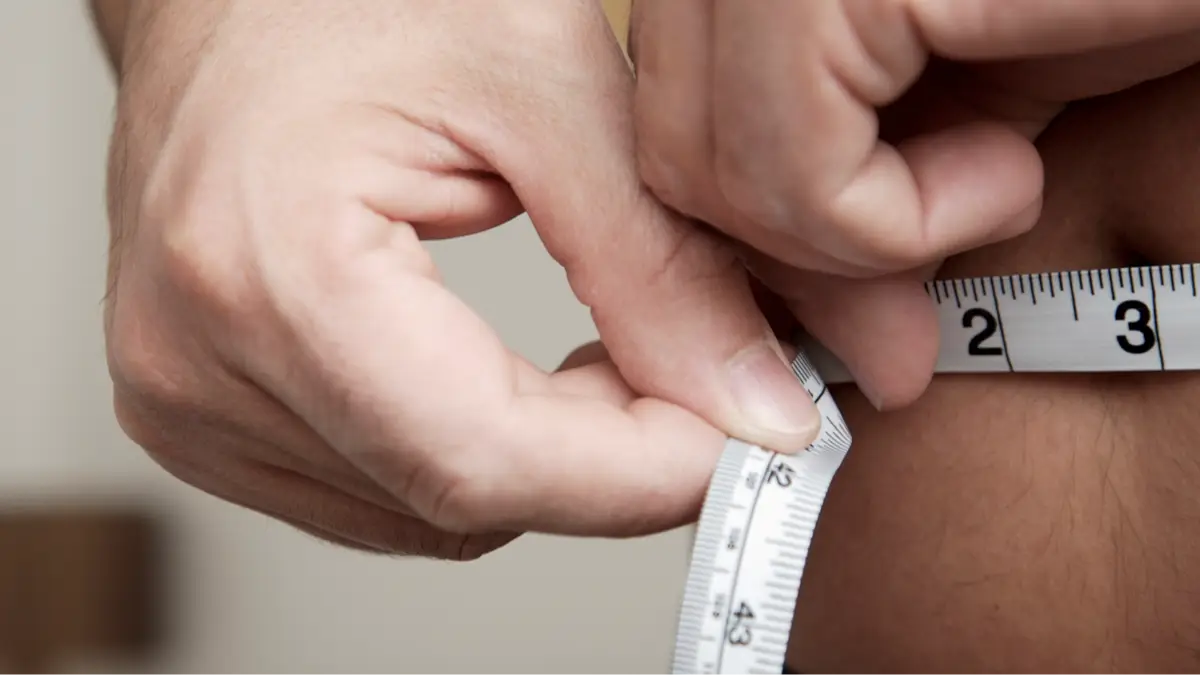
A recently published study has found one weight loss treatment is five times more effective than GLP-1 agonist drugs such as Ozempic, Mounjaro and Wegovy amid the ongoing rise of weight loss jabs.
Ozempic, an injection marketed for people with type 2 diabetes to help them manage their blood sugar levels, has become popular in recent years among those hoping to lose weight.
It has never been approved for weight loss - unlike other drugs such as Mounjaro and Wegovy.
However, one group of researchers are advising those looking to shed the pounds to have more realistic expectations about weight loss jabs, and to consider another more effective treatment path.
Advert
A study published earlier this year found that both sleeve gastrectomy and gastric bypass are five times more effective at losing weight compared to semaglutide (the active ingredient in Ozempic and Wegovy) or tirzepatide (the active ingredient in Mounjaro).

Experts over at NYU Langone Health and NYC Health + Hospitals found that patients who had one of the procedures lost an average 58 pounds after two years compared to an average of 12 pounds to patients who had received a GLP-1 prescription for at least six months.
You might point out that people on GLP-1 drugs were only given a quarter of the time to shift the weight than those who underwent surgery, but the scientists argue many people taking weight loss jabs find it tricky to keep doing so in the long run.
In fact, Avery Brown, MD, lead author on the study, says 70 percent quit using GLP-1 drugs within a year.
Researchers also point out that after a full year on GLP-1 drugs, patients in the study only lost seven percent of their body weight, compared to 24 percent for those who underwent surgery two years earlier.
Dr Brown said: "Clinical trials show weight loss between 15% to 21% for GLP-1s, but this study suggests that weight loss in the real world is considerably lower even for patients who have active prescriptions for an entire year.
"GLP-1 patients may need to adjust their expectations, adhere more closely to treatment or opt for metabolic and bariatric surgery to achieve desired results."

Of course, any surgery carries some degree of risk. According to Mayo Clinic, those undergoing a gastric bypass or sleeve gastrectomy can experience side effects such as infection, blood clots, bowel obstruction and hernias.
Having an operation is a permanent solution which some people may be wary of, while you can decide to go off weight loss drugs at any given opportunity should you wish.
On top of that, surgery also requires patients to maintain strict diet and exercise routines to ensure the desired weight is lost and maintained.
Karan Chhabra, a bariatric surgeon at the NYU Grossman School of Medicine, added: "In future studies we will aim to identify what healthcare providers can do to optimize GLP-1 outcomes, identify which patients are better treated with bariatric surgery versus GLP-1s, and determine the role out-of-pocket costs play in treatment success."
In a statement provided to UNILAD, Novo Nordisk, the maker of Ozempic, said: "Obesity is a complex disease that is often misunderstood, underdiagnosed and undertreated. It requires long-term management and is influenced by a number of different factors including physiological, psychological, environmental, socio-economics and genetic factors. There is no one-size-fits-all solution to obesity, and medications are only one part of the solution.
"Treatment decisions should be made together with a healthcare provider who can evaluate the appropriateness based on an assessment of a patient’s individual medical profile."
Meanwhile, Lilly, another weight loss drug provider, told UNILAD: "Obesity is a complex disease which cannot be addressed with a one-size-fits-all approach, so it is important that there are different treatment options available to allow healthcare professionals to identify the most appropriate treatment for eligible individuals."
